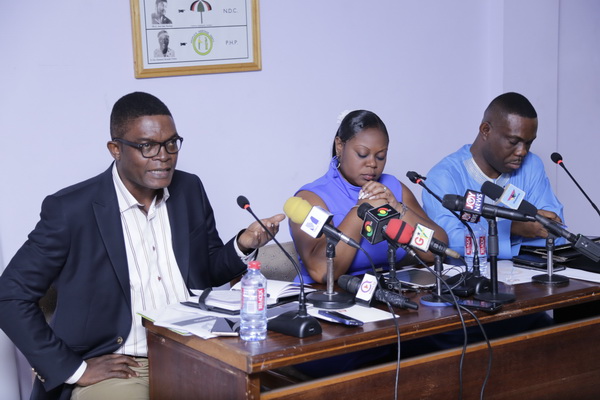
Majority Ghanaians support election of MMDCEs – Survey
A majority of Ghanaians want to elect their metropolitan, municipal, and district chief executives (MMDCEs) into office, a recent Afrobarometer survey has revealed.
The survey conducted in September 2017 is the Round 7 findings on local government and the election of MMDCEs carried out by the Centre for Democratic Development (CDD-Ghana).
Advertisement
The survey which sampled 2,400 respondents showed that 69 per cent of Ghanaians want the positions of MMDCEs to be elective, while 25 percent want the current system of appointment of MMDCEs to be maintained.

The findings of the survey is being released at a time when President Nana Addo Dankwa Akufo-Addo has reiterated government’s commitment to push for a law that would make MMDCE positions elective in a bid to improve transparency and accountability at the local government level.

Key findings
The survey which was released Tuesday is consistent with previous Afrobarometer survey findings carried out in 2008 and 2012.
It showed that the preference for the election of MMDCEs has increased by 9 percentage points between 2008 and 2017.

A majority (52 per cent) of respondents in the Upper West Region, however, preferred that the status quo of appointing MMDCEs be maintained.

When asked for the format by which the election should be held, 51 per cent of the respondents preferred the election to be held on a non-partisan basis as is done at the assembly level, while 41 per cent preferred the elections be held on partisan basis with MMDCEs as representatives of political parties.

Panel discussion
Discussants at the public release of the report - Dr Eric Oduro Osae of the Institute of Local Government Studies and Dr Emmanuel Akwetey, Executive Director of the Institute of Democratic Governance (IDEG), welcomed the survey report as timely and agreed that it is imperative for MMDCEs to be elected to deepen democracy at the local level.

They held that although the present system of local governance has contributed to the development of democracy at the local level, there is more room for improvement.
“There’s been some development but we should ask that, are we at the level we expected and what more do we want from it,” Dr Akwetey noted.
They also agreed with the research findings that although the election should be held on a non-partisan basis, the influence of politicians could not be ruled out and welcomed the President’s call for reforms in the Local Government Act.
“If we want to look at responding to the needs of the people, I think we have the chance to do that in the next 25 years but I think we cannot do it if we continue to keep the parties out. You cannot elect DCEs in any form without bringing about reforms in local government,” Dr Akwetey said.
Dr Akwetey was also of the view that election of MMDCEs would improve corruption perception in the country as well as accountability.
“Corruption will come down; access to public services will improve [as well as] quality of life. It will be election over local development. They [politicians] can’t escape because they will be voted out if they don’t perform. So a lot will change,” he said.
Dr Osae also noted that election at the partisan level is an international best practice which if adopted in Ghana, would deepen local democracy.
“Local democracy will not be complete until we elect MMDCEs,” he said.
They, however, held that there is the need for the public to be sensitised on the work of the local government and MMDCEs.



